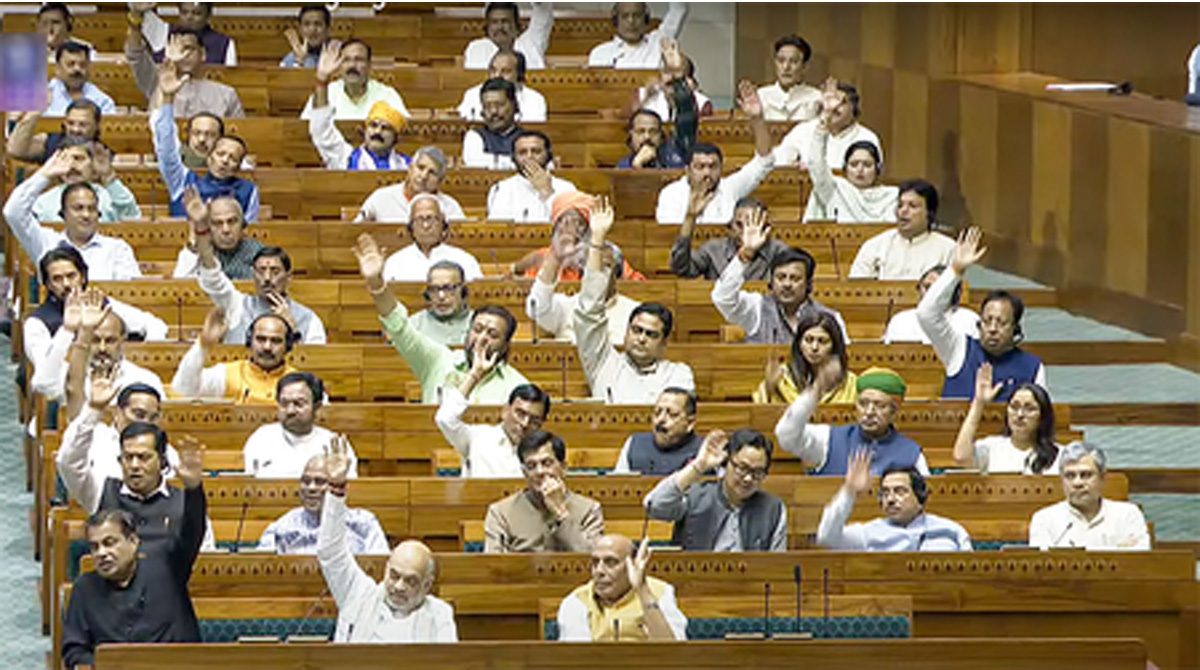
New Delhi: The Lok Sabha engaged in a marathon debate on Wednesday over the Waqf (Amendment) Bill, with discussions lasting nearly 12 hours before the bill was ultimately passed in the early hours of Thursday. It received approval with a majority of 288 votes against 232.
During the debate, Union Home Minister Amit Shah criticized the previous UPA government’s 2013 amendments to Waqf laws, describing them as politically motivated and hurriedly introduced before the 2014 elections. He highlighted the amendments’ significant implications, including the transfer of 123 VVIP properties in Delhi’s Lutyens zone to Waqf authorities and argued that the current Bill would not have been necessary if those changes hadn’t been made.
Shah emphasized the Waqf Board’s crucial role in ensuring accountability and preventing financial mismanagement.
Union Parliamentary Affairs Minister Kiren Rijiju defended the government against allegations of targeting the Muslim community, stating: “You accuse us of acting against Muslims, yet it was your government that created divisions by establishing separate boards for Sunni, Shia, and other sects. We are proposing a unified board to foster unity.”
He also addressed concerns over the role of the Collector, asserting that their responsibilities include revenue management and welfare of the district’s citizens. Rijiju clarified, “If we cannot trust the Collector, then who can we trust?”
Amid the criticisms, Rijiju stressed the need for decisive action and accurate record-keeping. Responding to AIMIM chief Asaduddin Owaisi’s remarks that the Bill insults Muslims and questioning why similar measures weren’t applied to Hindus, Rijiju stated, “Provisions for Hindus already exist. We are introducing measures for women and children in Islam, who are citizens of this country.” He insisted that any claims of ancestral land usage by Waqf now require proof and that this applies to all, emphasizing that all lands belong to the nation.
Owaisi vocally opposed the Bill, strongly criticizing it. Jagdambika Pal, Chairman of the Joint Parliamentary Committee (JPC) on the Waqf (Amendment) Bill, earlier expressed confidence the legislation would pass and bring significant benefits to the Muslim community, dismissing opposition claims of ulterior motives related to the upcoming Bihar Assembly elections.
Despite the concerns and criticism, Syed Naseruddin Chishty, Chairman of the All India Sufi Sajjadanashin Council, urged people not to believe claims that religious properties would be taken away with the passing of the Bill, asserting that it aims to establish stricter regulations to prevent misuse.
In the Lok Sabha, Congress MP Gaurav Gogoi condemned the Bill as an “attack” on Parliament and the Constitution, alleging it had four objectives that targeted the Muslim community. Samajwadi Party President Akhilesh Yadav criticized the government, claiming that the Waqf Bill was a reflection of its failures.
Senior Congress leader Rashid Alvi assured that the Congress would revise the Waqf law once back in power in 2029.
National Commission for Minorities (NCM) Chairman Iqbal Singh Lalpura supported the Waqf (Amendment) Bill, stating it is in the community’s broader interest and would not harm Muslims.
Meanwhile, political parties from Jammu and Kashmir, excluding the BJP, opposed the Bill, asserting it seeks to disempower Muslims. Chief Minister Omar Abdullah declared the Bill unacceptable to his party.
Congress Spokesperson Pawan Khera condemned the Bill as both “anti-Muslim” and “anti-constitutional,” claiming it assaults core constitutional principles of equality, federalism, and minority rights. K.C. Venugopal, a Congress MP from Kerala, criticized the government for the ‘discriminatory’ Waqf Amendment Bill, suggesting it was aimed at pushing an agenda of division based on religion.
